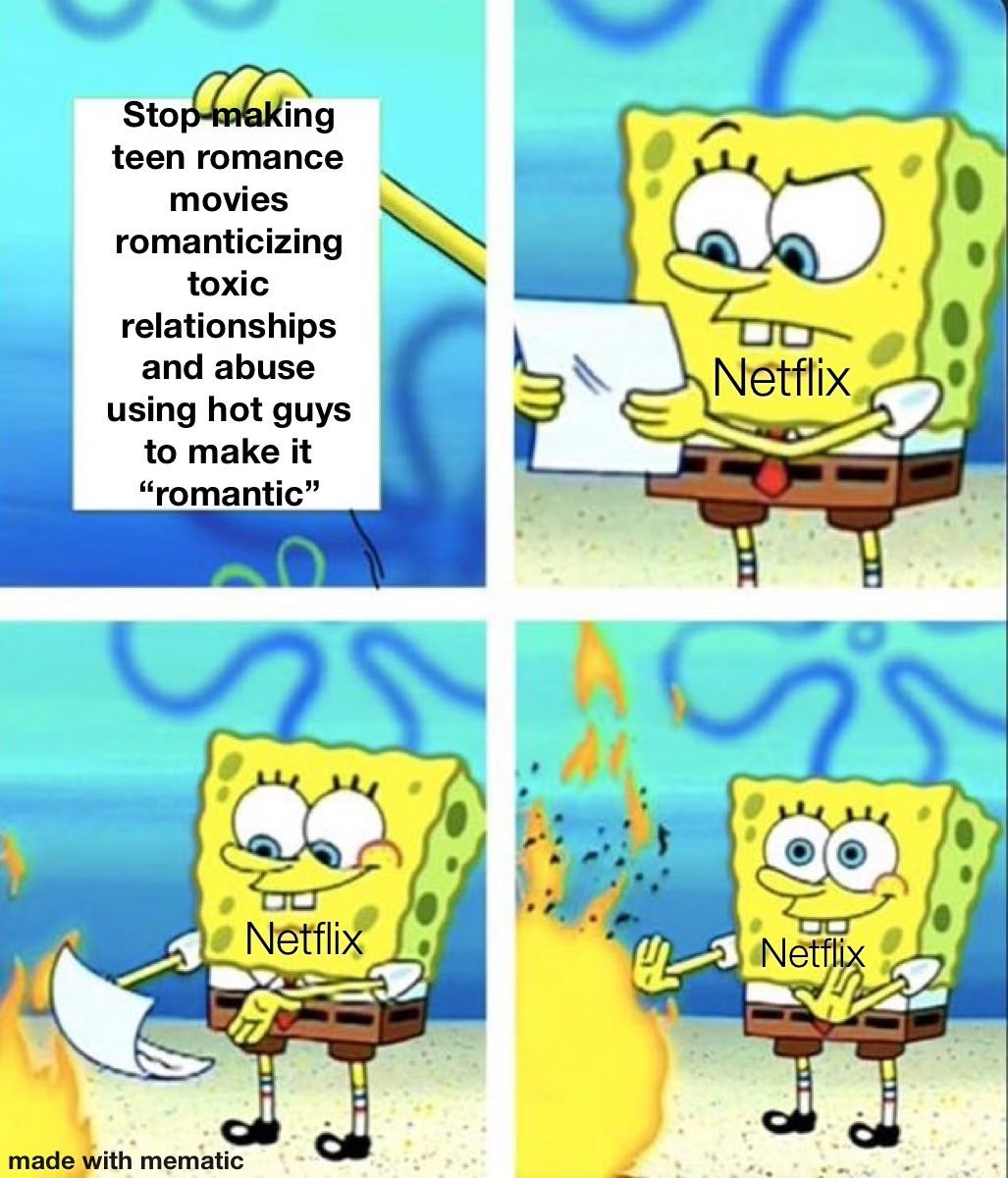The Hidden Dangers of Romanticizing Toxic Love
Introduction
Two things to expect here, you’ll learn more about romanticizing toxic love and Ill take a jab at some of your favorite movies.
How is this related to that? You’ll find out in a bit.
Lets start with a question:
ever wonder why so many people get trapped in toxic relationships?
If you’ve ever had the misfortune of watching Twilight, you’ve seen this in full display.
A century-old vampire sneaking into a teenager’s room to watch her sleep?
Hollywood dressed it up as devotion. Reality would call it stalking.
Or as I like to say: that’s not just creepy, it’s stake-ing out your “true love.”
The point here is that such perspective can blur the lines between passion and toxicity.
They wrap harmful behaviors in the packaging of romance, making it far too easy for us to get swept up in the illusion.
And it’s everywhere!
Movies, songs, and social media often make toxic behaviors seem thrilling or even romantic.
It’s like they’re selling us a love potion… and forgetting to mention the side effects.
How many times you heard her saying ‘I like guys with an outlaw attitude and a motorcycle’?
Sure, it sounds thrilling, until that “bad boy” shows no respect for your boundaries or your mental health and ruin your life.
This glamorization can skew our understanding of what love truly means.
The real danger in my opinion lies in how these distorted views of love affect our choices and self-perception.
When we romanticize toxicity, we risk compromising our mental health and forget to respect our boundaries.
Now that I took the first jab on the first movie and laid the groundwork for the post, let’s unpack more.
Understanding Toxic Relationships in the Context of Romanticization
Lets just define toxic relationships briefly so we all be on the same page.
Simply put, toxic relationships are marked by patterns of unhealthy and harmful behavior that involves elements of control, manipulation, and emotional abuse.
Unfortunately, societal narratives can make these traits seem appealing to us.
Societal narratives, through movies and books, frequently depict intense, turbulent relationships as the ultimate love story we miss.
What most dont know is that these narratives glamorize possessiveness and jealousy as signs of deep affection rather than warning signals.
Take “50 Shades of Grey,” which marketed itself as a passionate love story where a wealthy man isolates a young woman, controls her food intake, and tracks her movements.
As they say, nothing says “I love you” like a legally binding non-disclosure agreement, ha?!
Even Disney classics aren’t immune.
Beauty and the Beast essentially tells young viewers that if you just love your captor enough, you can change them.
Though I suppose “Stockholm Syndrome: The Musical” wouldn’t have quite the same ring to it!
What do these movies have in common?
Pop culture often influences our understanding of love by emphasizing drama and sacrifice. This is the answer.
From famous ‘will they, won’t they’ scenarios to dramatic breakups and makeups, these stories seldom highlight the long-term effects such relationships can have.
Now, I want you to buckle yourself for this movie Ill throw here since its loved by so many (including myself, but not in the same way).
“The Notebook” is often cited as one of the most romantic films ever as you know.
Yet, it features a man threatening self-harm unless a woman agrees to date him.
(Apparently, emotional manipulation is fine as long as it’s done in the rain while looking like Ryan Gosling).
This repetition shapes what we accept as normal, making it even harder to recognize and escape harmful relationship patterns.
Frankly, I cant really blame people for being in such scenarios or relationships.
These narratives are so deeply embedded in our cultural consciousness that we often miss the red flags waving so hard they could power a wind farm.
The tragic part is that romanticizing toxic relationships make us prone to not only stick around but it also highlights why we choose to stay.
There are a few key reasons:
- Not wanting to lose the investment of we put in this relationship.
- Our empathy has us feeling responsible for their pain and their fix.
- We are lonely and fear we will be forever.
- Giving up on a romanticized idea of the relationship is too hard for us to accept.
- We see the potential of the person versus who they are in reality.
- Or we frankly don’t believe we can do better.
Regardless of the reason, one thing for sure is that we are ruining our lives in the process in many ways.
For example, romanticizing toxicity warps our self-perception and boundaries.
You might start believing love requires severe suffering, and personal needs come second to maintaining the relationship.
This erosion of self-worth is another element that leads to a lack of healthy boundaries, making it challenging to stand up for yourself.
Over time, this can lead you to feel trapped and powerless in your own life and feel unable to envision a relationship where mutual respect and kindness are the norms.
Recognizing Red Flags and Setting Boundaries
Identifying red flags in your relationships is like spotting the iceberg before it sinks the Titanic.
In my previous post on toxic attachment, I highlighted many reasons.
But, some red flags to watch out for:
- Excessive control: If your partner manages your time like a micromanaging boss, it’s not love, it’s a job you didn’t apply for.
- Constant criticism: Constructive feedback is healthy, but if every conversation feels like a performance review, it might be time to update your choice of a partner.
- Unpredictable moods: mood swings in a partner or a friend speak more of the individual than anything else. Pay attention here!
- Severed ties: Some toxic partners might say or do whatever it takes to make you disconnect from your family or friends to deepen your reliance on them later.
If these sound familiar, reassess the relationship and work on establishing stronger boundaries.
Boundaries aren’t just helpful, they’re non-negotiable.
They act as the blueprint for our emotional well-being, defining what is acceptable and protecting our self-respect.
Think of them as the “terms and conditions” of a healthy relationship, non-negotiable and clearly stated.
Start by reflecting on what makes you uncomfortable. For instance:
- Do you feel drained or demeaned after certain interactions?
- Are you constantly compromising on things that matter to you?
- What behavior makes you feel like a background character in someone else’s drama?
Expressing boundaries requires assertive communication.
It’s not about building walls but ensuring there’s no way to accept disrespect from your partner or friend.
If they dismiss your boundaries, it’s not a misstep, it’s a red flag.
As far as I can tell, romanticizing toxic relationships is like calling a dumpster fire “ambiance.”
In my opinion. healthy relationships don’t need dramatic plot twists, they thrive on boring things like mutual respect and understanding.
Take a step back and ask:
- Does this relationship make you feel whole and content and safe?
- Are you holding onto potential like someone clinging to a lottery ticket that expired last year?
I said this before in one of my posts and here it is again:
Love isn’t a DIY project, it’s a partnership.
This means you shouldnt carry the weight of someone else’s unresolved baggage.
You can help, yeah. But not at the expense of your sanity or boundaries.
Asking these questions is the first step to self-awareness and personal growth.
Understanding your personal values and what you truly want from a relationship prevents potential pitfalls.
Reflect on your past experiences, learn from them, and identify patterns that need breaking.
Identify what matters to you most, like trust and respect, and use these as a benchmark for your connections.
This way, aligning your relationships with your core values ensures they’re not only satisfying but sustainable.
Keep in mind, love should be nurturing, not damaging.
Speaking of love, I have written two posts on what love really is in my opinion.
Its safe to say I got a lot of raised eyebrows and messages from some of the readers.
Id really encourage you to read them and see what actually makes sense.
Who knows, you might end up agreeing with me.
Conclusion
Toxic relationships are like being stuck in quicksand, the longer you stay, the harder it gets to climb out.
But here’s the truth:
the only thing worse than wasting years in a toxic dynamic is wasting more years hoping it will change.
Choosing yourself isn’t selfish; it’s survival.
It’s about acknowledging that love isn’t supposed to feel like a battle you’re constantly losing or a gamble with your self-worth.
The healthiest relationships don’t demand your silence, your sacrifice, or your suffering, they invite your growth, your voice, and your joy.
So, take a moment to reflect:
- Are you holding onto a relationship for what it could be instead of what it is?
- Are you confusing familiarity with love or fearing loneliness more than toxicity?
You don’t need to burn yourself to keep someone else warm.
At the end of the day, the healthiest relationships mirror your best self, not your wounds.
This is one of the reasons why I created The Future You Lab.
I believe in the power of informed choices and understanding personal values.
Id encourage you to explore the resources on toxic relationships to empower your journey toward healthier connections and a more fulfilling life.
I dont sell courses, or give half-baked answers, I share what I think and believe and proven to be right with you to consider.
Stay free!





